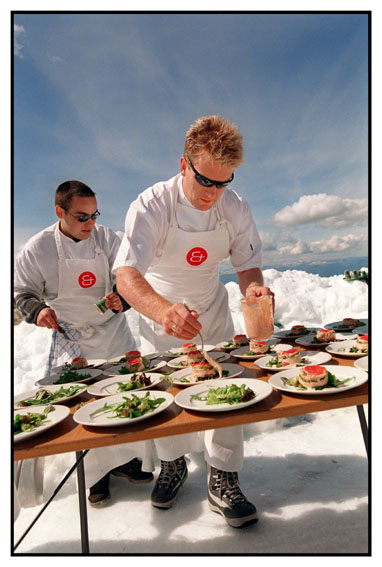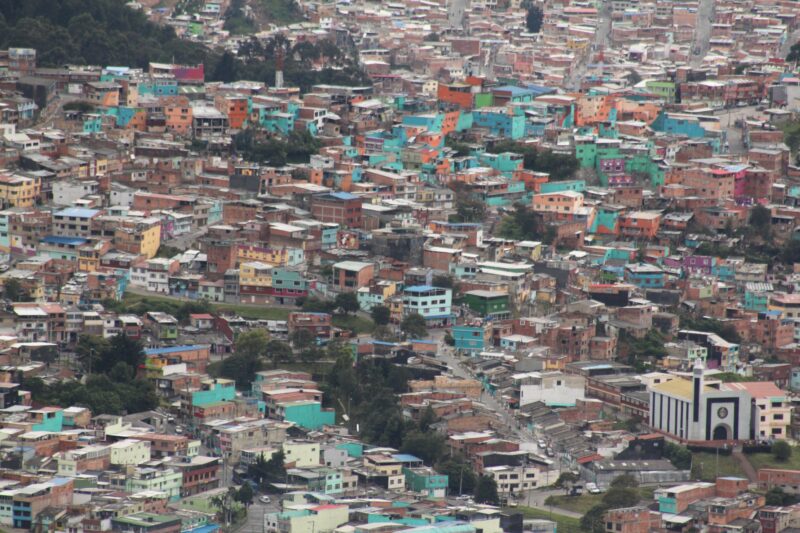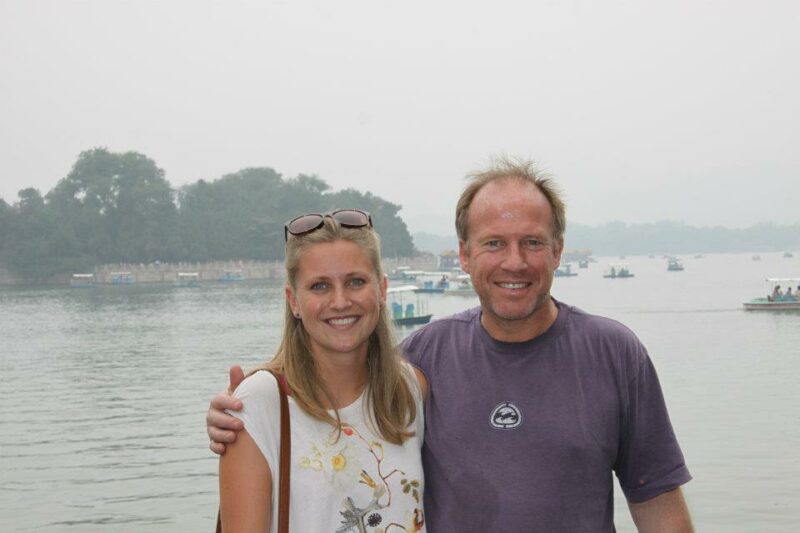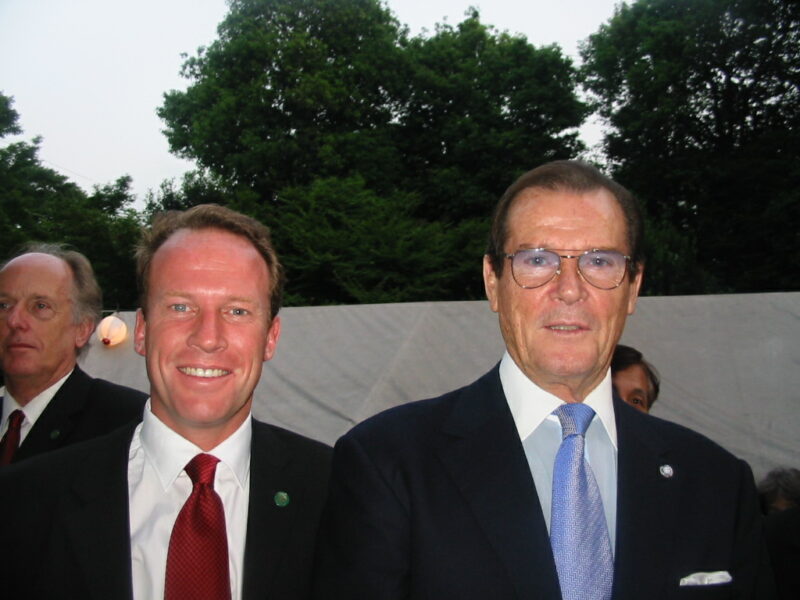“Today we go to casino,” says Maxim, punching his mobile phone to summon his chauffeur. “We make some money.”
Just 32 years old, Maxim Avdevich has had money to spare for years. The son of an adviser to Russian leader Mikhail Gorbachev, he exploited his government contacts with skill, creating a multi-million dollar company during the late 1990s at a time when everything seemed to be up for grabs.
Moscow became the official number one city of world crime, with kidnapping of foreigners running into thousands per year, mafia extortion all pervasive and so many killings of prominent businessmen that the Russian newspapers only bothered putting them on the front page if the means of death was particularly unusual.
The roll call of assassinations makes grim reading. There was Lee Wong, a Chinese businessman and fast food chain owner, shot in the face at a metro station in central Moscow, for complaining to the police about Mafia harassment. Or Jan Praamsma, a Dutch cheese distributor, killed by drowning in the River Moskva for not paying protection money. Then there was Paul Tatum, shot 11 times in the head and neck (because his attacker knew that he was wearing a bullet proof vest) for refusing to pay a Mafia bribe, known as ‘krysha’. Just before his death, Tatum had taken out a full-page ad in a local paper denouncing his Chechen business partner for trying to squeeze him out of their hotel joint venture.
Chechens, Georgians, Ukrainians and Belarussians have played a prominent part in Moscow’s Mafia underworld. Formerly part of the Soviet Union, these states now have an uneasy relationship with Russia, especially Chechnya, with years of civil war and terrorist attacks inside Russia.
Maxim’s family is Byelorussian, but he has few links with the past: his future is all about Moscow and the fabulous riches that the top few percent have been able to harvest from the new economy. He owns three flats in smart neighbourhoods, has employed upwards of 2,000 people in his publishing business and takes his holidays in the upmarket hotels of London and Paris.
“Meet Barbie,” says Maxim, introducing a cute, silky-haired Russian woman dressed in pink. Her real name is Svetlana, but she fits her nickname perfectly, all boobs and legs and long blonde hair. “She is nice, yes?” says Maxim. He has two ex-wives with three children between them, but these stay quietly in the background, seldom seen in public.
While the regular Mafia earn their millions from taking bribes, extortion money, drug running and arms dealing, Maxim has a different approach to commerce. His company publishes books and magazines for government officials, including hundreds of pages of advertising from businesses who want to get state contracts. His company takes money from these businesses for the ads and then pays a percentage of it to the government officials, as a reward for them urging companies to advertise in his publications. It’s a neat, circular kind of arrangement, within the law (in Russia), but pretty odd from a European point of view.
He’s also acted as an investment promotions agent for the Russian regions and promoted a Moscow Tea Festival, an initiative he said was endorsed by President Putin as a means of weaning Russians off vodka.
“I want you to get advertising for me in London,” says Maxim. “You pay the politicians and they will tell the companies to advertise.” I tell him that British politicians are not so easily persuaded to become your sales agents. When anything like this is found out the politicians may lose their jobs and their party can suffer in elections, I explain.
But in Russia, the idea of paying a politician to do something for you is seen as normal. The days of high profile businessmen being shot every second week are now gone, thanks to President Putin’s stern regime, in which some of the country’s biggest businessmen such as Mikhail Khodorkovsky have ended up in jail, but the culture of corruption is very much alive, according to recent reports. More than a third of Russians admitted paying at least one bribe in the past year. Entry to universities in the country, along with gaining diplomas, is routinely achieved through making payments to teachers of as much as $14,000.
The chances of being caught up in a gun battle between rival Russian gangs in Moscow are slim, just as they are in any major capital, but the incidences of theft and extortion, bribery and corruption, are still on the increase, according to official advice from the US embassy, despite Putin’s reforms.
With his government contacts, Maxim says he has little to fear from the Mafia. “The Mafia are afraid of me!” he says as we speed through the mid-evening Moscow rush hour, using a police light stuck to the top of his car as a way of by-passing the queues (a common scam among New Russian businesspeople, apparently condoned by the police). Although he could afford it, Maxim does not own a big flash Mercedes like many New Russians (the joke goes “Hey, Vitaly, why have you bought a new Mercedes?” “The ashtray was full in the old one,” says Vitaly). He thinks this would make him too conspicuous and liable to robbery, though in many other ways he is happy to be in the limelight. On one casino expedition he had a great winning streak on the roulette table, ending up with gains of around $75,000 and a crowd of amazed spectators. We’ll see how his luck goes tonight.
The casino is called Crystal and we are ushered in by respectful but muscular door attendants, into a pink and yellow neon-lit fantasia of a ballroom, hundreds of gamblers milling between the roulette, blackjack and dice tables, scantily-clad waitresses ferrying free drinks to everyone. Maxim hands me $100 to get me started and then sets to work on the roulette table. His method is to cover the whole board with maybe 10 or 12 small piles of chips, banking on winning at least something each time. As with most kinds of gambling, it’s a pretty random strategy, but it seems to work for him. Within a few minutes his pile had grown to several hundred dollars. He leaves me to play roulette with Barbie and heads for the slot machines.
New Russians love nothing so much as spending lots of money on as little as possible, as a means of displaying how much they have and how little it means to them, so the casino is perfect for them. But still it seems quite a serious business: Russians, even the young and wealthy, seldom go wild. Their ostentation is done without a smile, casually, as though they were doing some tedious piece of administration.
Such is the workload of a Moscow Mafia hitman that they are said to have much the same attitude to killing: it’s just part of the job. The most famous Russian murderer of them all, Andrei Chikalio, had killed an estimated 52 people before he was caught and sentenced to death in 1992, arguing that he had done nothing different from the rest of society.
The systemic use of bribery and corruption in Russian society has meant the country paid a heavy price in foreign investment, until the past couple of years, where there has been a serious upswing. Some major corporations are still wary of becoming too involved in a country where businesspeople can be killed if they fail to pay bribes or protection money. Since the fall of communism, hundreds of millions of dollars of foreign aid and loans have disappeared into offshore bank accounts, never to be traced again by the Russian authorities, and even the highest profile multinational deals are liable to go astray. A recent joint venture between European and Russian oil companies ended in legal disputes after the Russian partners refused to pay millions of dollars the Europeans claimed they were owed.
On the streets of Central Moscow, you may be liable to fall victim to petty theft such as pickpocketing, but these days the evidence of gun-toting gangsters is much thinner on the ground. Putin has certainly succeeded in driving them off the main streets, and in some cases out of the country. Australian authorities have reported a sharp rise in Russian-related crime, according to the Federal Police. Fraud, drug-running, pimping and blackmail are all on the increase, often carried out by former members of the KGB, the Russian secret service. Sydney and the Gold Coast have the biggest concentrations, say the reports.
Besides ex-KGB members, the Russian Mafia has been skilled at recruiting Spetznaz special forces, former army officers, and a number of former sportsmen – boxers, martial artists and Olympic weightlifters and rifle shooters (handy for carrying out sniper hits).
The US has provided a home for many Russian gangsters, with levels of Mafia activity reaching the point where Italian gangs are being challenged. The exodus began in the 1990s, when some of Russia’s most notorious Mafia dons fled the country for fear of being arrested. Vyacheslav Ivankov was implicated in the shooting of two Turkish men in a Moscow restaurant in 1992, but was then arrested in the US after trying to extort $3.5 million from two Russian businessmen over there. He was sentenced to nine years in prison, with the authorities believing that he had become the head of the Russian Mafia in New York. The Russians in New York are thought to hang out at Brighton Beach – which they call ‘Little Odessa’.
In Western Europe the trade of choice for the Russian Mafia is people, with thousands of women being trafficked from their own country, from the Ukraine and other former Soviet countries to work in the brothels and strip joints of London, Frankfurt or Amsterdam.
The real number of organised criminals in Russia is of course very hard to estimate, but the Russian Interior Ministry has quoted the figure of 100,000, with around 9,000 criminal organisations operating inside the country, and up to 80 per cent of Russian businesses paying protection money. Until President Putin’s election in 2000, paying protection money was something that companies would openly admit. Canadian entrepreneur Doug Steele used to own the infamous Moscow nightclub called the Hungry Duck, a popular hangout for Mafia guys and regular businessmen alike. Maxim took me there one time back in 1998 and we watched as women (regular guests, not professionals) danced and stripped on the bars, with crowds of men – some in long black leather jackets, others in suits - jostling to get a drink.
“You have to grease the palm or you won’t be in business,” said Steele at the time, having survived one kidnapping attempt. He reckoned to have paid out at least $1 million in pay-offs to police, officials and the Mafia. “If it was not for the Mafia there would not be an economy. They are a driving force behind what goes on here.” In the end, the Russian government became too embarrassed by the uninhibited antics of the Hungry Duck (one official allegedly saw a group of young Russian women blowing off a Nigerian male stripper while the Russian national anthem was playing) and it was closed down after a succession of punitive raids by the authorities.
Still zooming along, however, is Nightflight, an upmarket restaurant and club with a vast population of upmarket hookers. Maxim takes me there when we leave Crystal Casino, having pocketed $8,000 from the slot machines – apparently you have to play bigtime to get the big payouts, shovelling in hundreds of dollars before you hit paydirt. Personally, I made $72, having put a two-dollar chip on my lucky number and then quit to cruise around the joint looking at the mobsters at play.
Maxim orders steak, bottles of wine, beer, vodka, salad and fries, turning the table into a chaos of over-indulgence. Then he pecks at the fries and necks the vodka, but hardly touches anything else.
“Money is nothing to me,” says Maxim, just about visible behind the piled plates of food and the forest of bottles.
But for others in today’s Moscow it still means enough to kill or die for.







